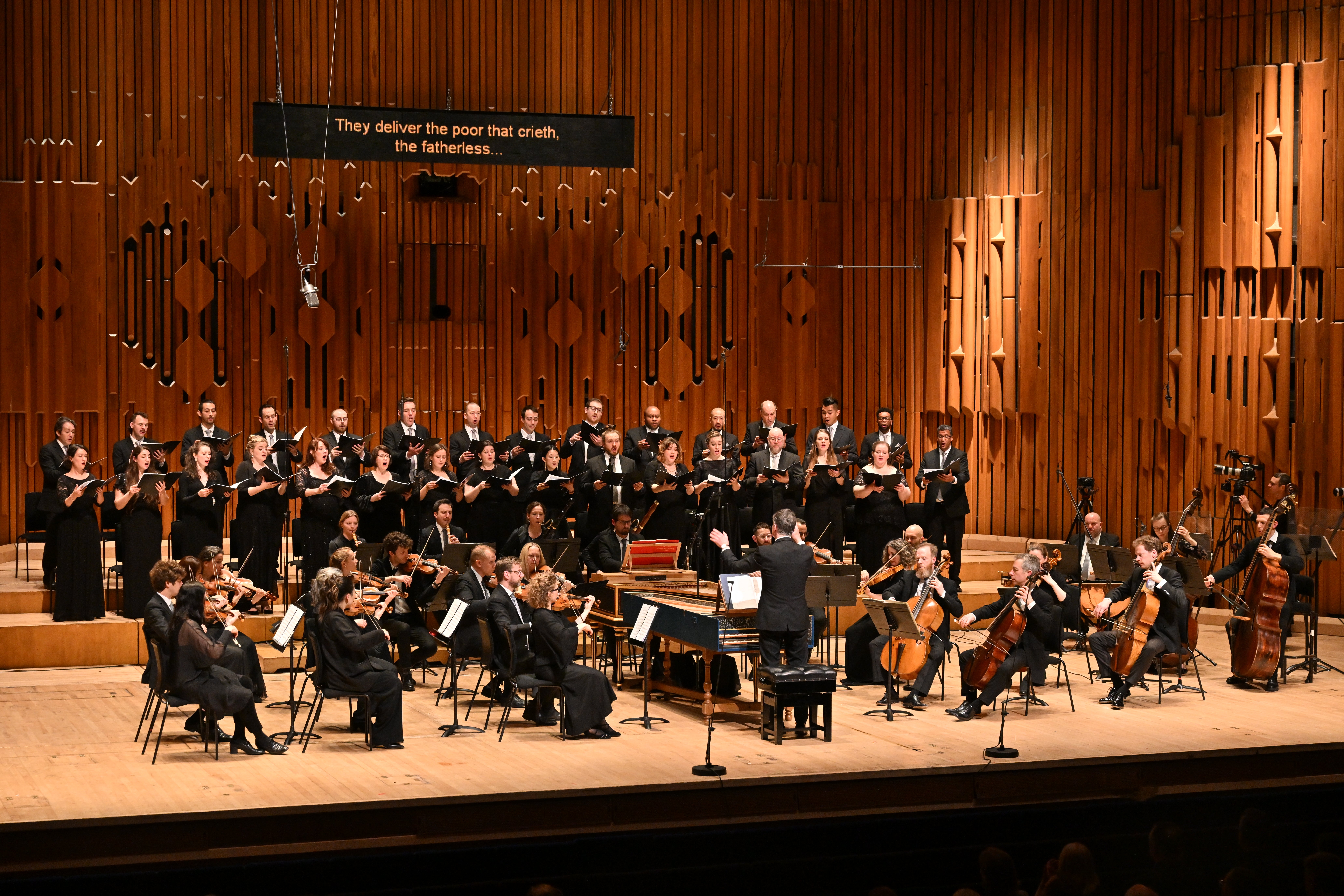
The title of this event, Handel: the Philanthropist, derives from the composer’s generous support for the Foundling Hospital, set up in 1739 in Bloomsbury. The programme for it – the Royal Fireworks Music, an anthem and a selection from the oratorio Solomon – reconstructed the one offered by Handel 10 years later, to raise money for the finishing of the hospital chapel.
Good works were expected, of course, of the wealthy in Georgian England and the Foundling Hospital Anthem celebrates the magnanimity of donors as much as it empathises with the “poor and fatherless”. It may not be top-drawer Handel – parts of it are recycled from earlier music of the composer, as was his wont – but it was set alight here in the very first aria by the tenor James Way, whose delivery, combining animation and nuance, is that of a true Handelian.
There were sparks aplenty too in the Royal Fireworks Music, where a battery of four trumpets, led by the stellar Mark Bennett, and three horns sent their own rockets into orbit. It was stirring stuff, even if some of Harry Bicket’s hair-raising tempi sometimes deprived the music of precisely the effect he was trying to achieve.
The well-drilled Clarion Choir, based in New York, dispatched the choruses of the anthem with brio. The last of them was the celebrated Hallelujah Chorus, recycled from Messiah, and it is now thought to have been the 1749 performance at which royalty (the Prince of Wales, not King George II, as usually believed) initiated the tradition of standing for the chorus. Here half a dozen audience members, whether traditionalists or attention-seekers, attempted unsuccessfully to revive the practice.

The English Concert is never less than accomplished, but there were too few moments in this first half – the pyrotechnics aside – when the delivery sounded freshly minted. After the interval, however, there was a transformation for the selection from Solomon, in which the legendary wisdom of the Israelite king (we hear nothing about the intriguingly proportioned harem of 700 wives and 300 concubines attributed to him in the First Book of Kings) is demonstrated by his judgment of the maternity dispute between two harlots: divide the baby in two and give each half, he suggests. Ann Hallenberg was the excellent Solomon.
The falseness of the second harlot (Niamh O’Sullivan), approving the decree, is revealed, while the heartbreak of the first was superbly evoked by Miah Persson’s stylish phrasing in “Can I see my infant gor’d”, and in the pregnant pauses and the lacerating dissonances of the woodwind.
No less surely paced was one of Handel’s finest inspirations, “Will the sun forget to streak”, sung exquisitely by the Cuban–American Elena Villalón, looking the part of the Queen of Sheba in a gold sheath of a dress.
Launched in conjunction with this event was an ambitious English Concert project, Handel for All, making freely available video recordings of the composer’s works as part of a cornucopia of riches for people of all ages and abilities. Truly a gesture to match Handel’s own generosity.







